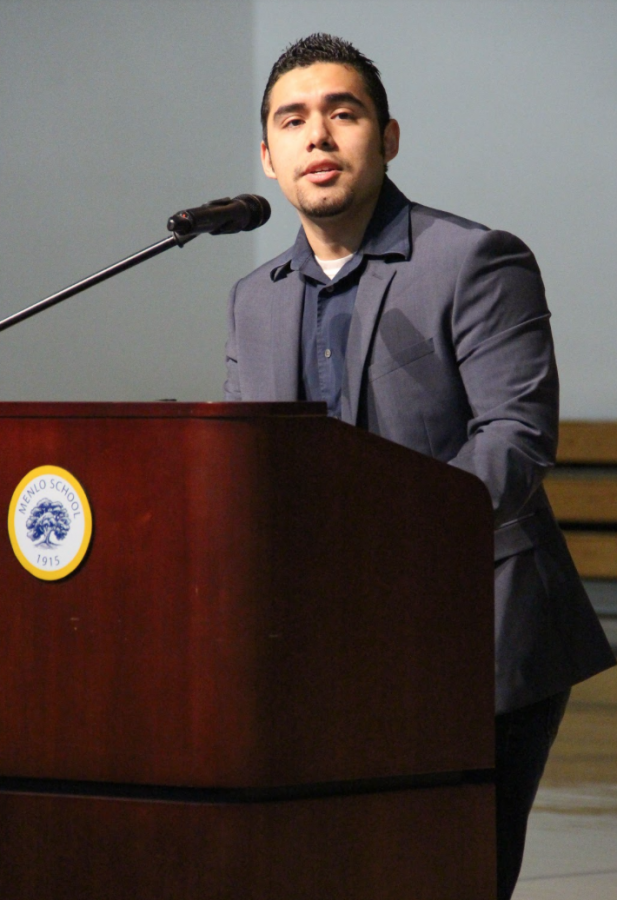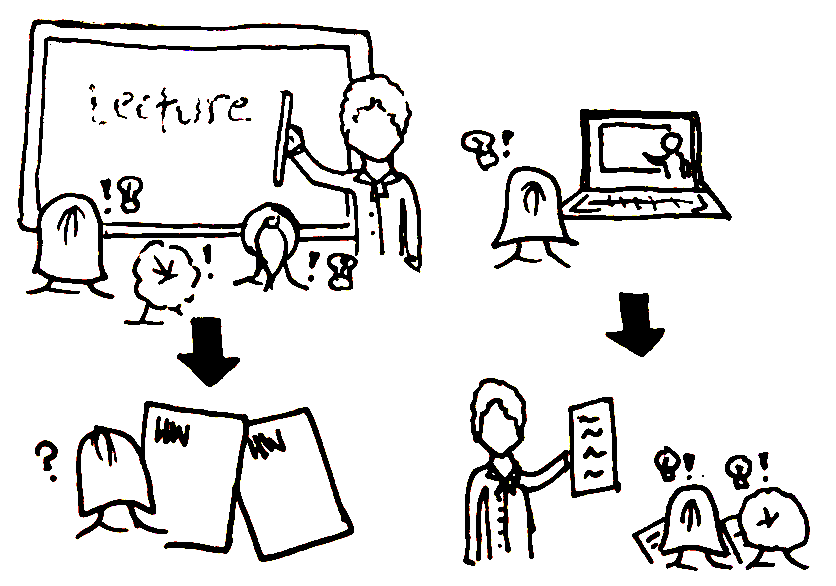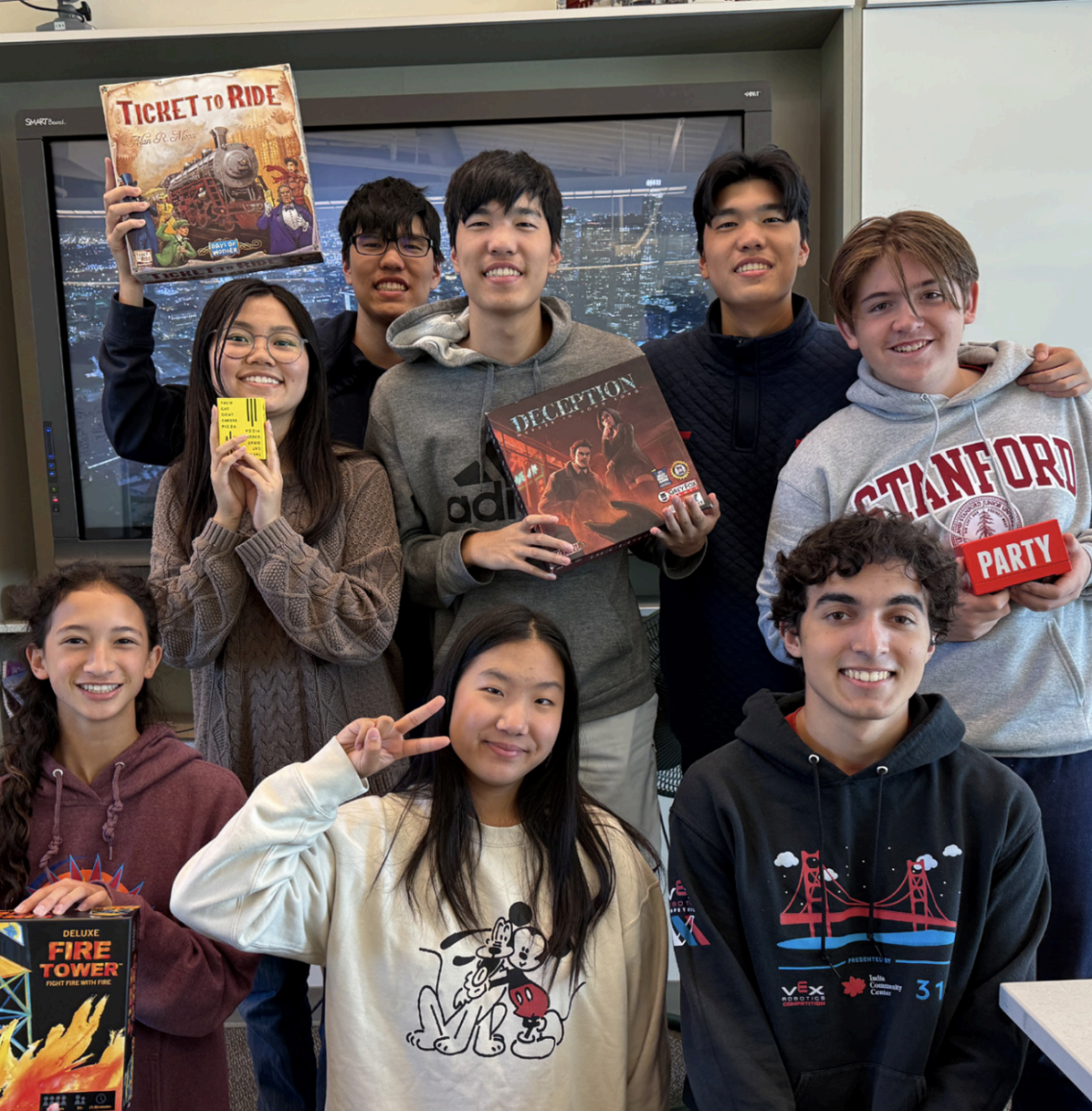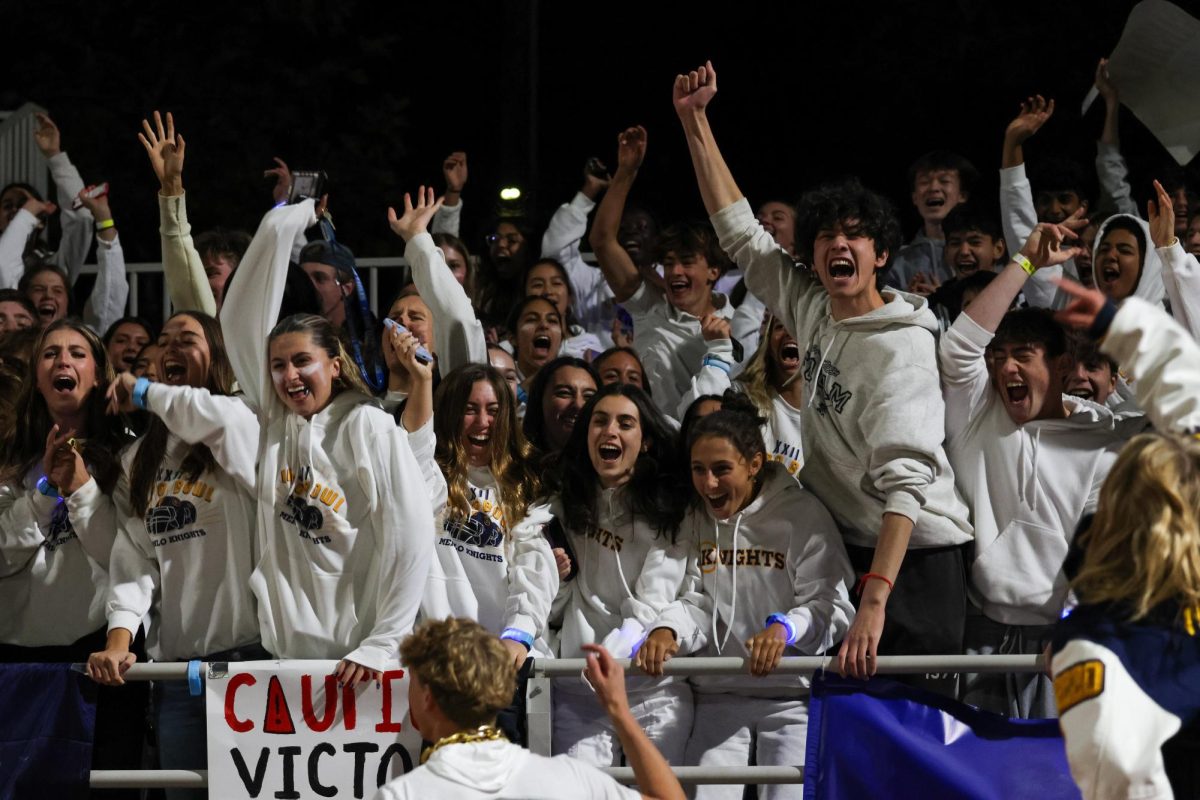Senior David Quezada discusses his thoughts about Menlo alum Tony Lopez’ assembly, providing both positive and negative aspects of the talk. Photo courtesy of Pete Zivkov on Menlo Flickr.
By David Quezada
Before I begin to unpack the assembly in more detail, I would like to state that I fully agree with Mr. Lopez’s point that the typical minority experience at our school is significantly harder than that of the average Menlo student. I’m not trying to argue that Menlo or our country as a whole is perfectly equal, rather, his manner of speaking, proposed solutions, and conflation of race with economic status was flawed and will not help the problem that he aims to solve.
Towards the middle of the speech, Mr. Lopez said to the crowd of 14-18 year olds, “You know how many times my eighth grade teacher back at Edison McNair Academy would tell us black and brown kids, 32 kids packed in a classroom, ‘The decisions you make now will follow you for the rest of your life?,’” Lopez said. “So in sum, why can’t we get it right? Institutional lethargy. To put it blunt, y’all just don’t care enough.”
To me, this seemed as if he was blaming us for the unfortunate fact that he was born in a less privileged position than we were. This was confusing because in his ideal world, if we really did “care” what could we, as Menlo students possibly do to relieve the struggles of the millions of poor minority youth across the country?
Personally, I took offense to this statement; it was a gross generalization backed up with no evidence. He’s correct in the statement that many of us at Menlo were born with a leg up on a lot of economically underprivileged individuals, but I fail to understand why that means “[we] just don’t care enough.” It seems as though he’s suggesting that in a perfect world, everyone would be born with the same exact opportunities and economic status. I agree that would be a perfect world, but unfortunately that kind of equality is simply impossible to achieve. One unfortunate fact of our country and every other capitalist nation in the world is that there will be economic inequality, but the leap to saying that it’s because “[we] don’t care enough” just doesn’t make sense.
After using the example of people being afraid of riots as evidence for racism in this nation, which is not a logical conclusion, Mr. Lopez talked directly to us students. “I am not asking you to solve a centuries-old power structure in a high school auditorium. What I am advising is to tackle the racial inequities Menlo School not only harbors, but in some cases, purchases. The most radical thing you can do, is take this endowed bubble as a microcosm of white privilege, and slowly leverage it to make the lives of your underserved peers a better place.”
When he said this I felt extremely disappointed. I guess I was hoping for more than just a vague statement with unnecessarily sophisticated rhetoric. While listening to the assembly, since the beginning of his speech, I immediately knew that I wanted to do something to alleviate the struggles he mentioned that I’m sure current Menlo minority students can relate to. But unfortunately I have no idea how to “take this endowed bubble as a microcosm of white privilege, and slowly leverage it to make the lives of [my] underserved peers a better place.” I don’t even know what that means, let alone how to start doing that. I really wish that Mr. Lopez could have identified something concrete that I could do to help fight for my peers who are underprivileged.
Mr. Lopez then went on to clarify what he meant about the majority of Menlo not caring about minorities. “In one sentence, you have to care about me, about my future, as much as you care about getting a license at 16, as getting a 2150 on your SAT, on scoring fives in all your AP’s, about getting into Princeton.” I’m not sure what Mr. Lopez was exactly suggesting here, in his ideal world would more privileged students be checking in on every minority student at Menlo every day? Making sure that all of their SATs and AP exams are taken care of intellectually and financially?
It seems as though he thinks that the average Menlo student owes minorities something simply for the fact that they were born with less. While I agree that the school has a duty to help everyone succeed, which is manifested by the administering of financial aid, the academic support program, the Jay Ward fund, and many other attempts to make up for inequalities. I disagree with the point that it rests on the Menlo student body to make sure minority students succeed. While being a minority at Menlo is certainly harder, how can I be expected to care about someone else in the same way that I care about myself and my wellbeing? Of course I want to see all of my peers succeed, of course I will do whatever is in my power to help people in need, but in reality, I can barely keep track of all the things going on in my own life.
In Mr. Lopez’s ideal world, I should have to make sure that my peers are keeping track of all of their lives as well? This is very unjust in my opinion. Yes, it’s a fact that my life has been easier than those of some others at Menlo, but I’m failing to understand why that means I am obligated to sacrifice my own future by trying to make sure that we all have the same level of success. While this may come off as selfish to some, I don’t think it is at all, rather I think of it as individualist. I do not take issue with the notion that we should help our peers on their road to success, but what I am saying is that it’s their road, we all have our own and there is no doubt that we all need help along the way but at the end of the day it’s our own road to walk.
As the reader may have noticed by now, I have only mentioned specific portions of this assembly, and that’s because in my opinion, a lot of it was a powerful recollection of what it was like to grow up as an underprivileged minority and then make the transition to Menlo. This, I have no problem with, I think it’s important that we have empathy for our peers who may have a harder path to success than us. I thought that Mr. Lopez’s recollection of how Dr. Dann, Mr. Devitt, and Ms. Gertmenian were instrumental to his success at Menlo was exactly the story that everyone, specifically minorities at Menlo should hear. It’s an unfortunate fact that Mr. Lopez’s life was harder than most of his peers, but that by no means held him back from success. With a degree from Duke, Mr. Lopez is a beautiful example of the American Dream, and hard work manifesting into success. That’s why I think the majority of his speech was profound and important because it reminds us that there’s beauty in the struggle. Mr. Lopez is someone that we can all take inspiration from.
To wrap up my analysis of the assembly, I have to say that I was thankful that Mr. Lopez took the time to speak to us about something that many of our peers at Menlo go through every day. The problem with his talk though, was that there was some sort of undeserved blame being placed on the typical Menlo student.
Statements such as “ya’ll just don’t care enough,” and “prove me wrong” do nothing to help combat the problem that minorities are generally born with less opportunities. One would expect that with such challenging statements, Mr. Lopez would be able to identify exactly what we “don’t care about,” but he just left us with, “Students, instead of calling each other “tryhards” all day, call each other complicit to a sexist, racist, homophobic, transphobic, ableist joke you overhear.” Unfortunately, I fail to see why becoming the joke police on campus will do anything to help our struggling peers, in the same way that simply starting a “dialogue” or a “conversation” surrounding race will do nothing to alleviate the fact that a disproportionate amount of minorities happen to be born with less than the majority of our student body.
Mr. Lopez’s story was one of power, and overcoming struggle, which is something I can relate to having a father who came into this country from Mexico around 6th grade speaking little English and unaccustomed to American culture. The difference that I see between my father and Mr. Lopez though is that my father never blamed his classmates or an institutional ghost in the machine for his unfortunate situation, but rather worked his tail off, and with the help of remedial English programs, his school’s college counselor, and financial aid from his undergraduate and graduate school, became successful.
I understand that this opinion could be controversial, and that many people may disagree. If you have any questions or comments about what I wrote please feel free to ask me about it, I will not be condescending or confrontational. My only goal is to voice my opinion and hopefully find common ground.








